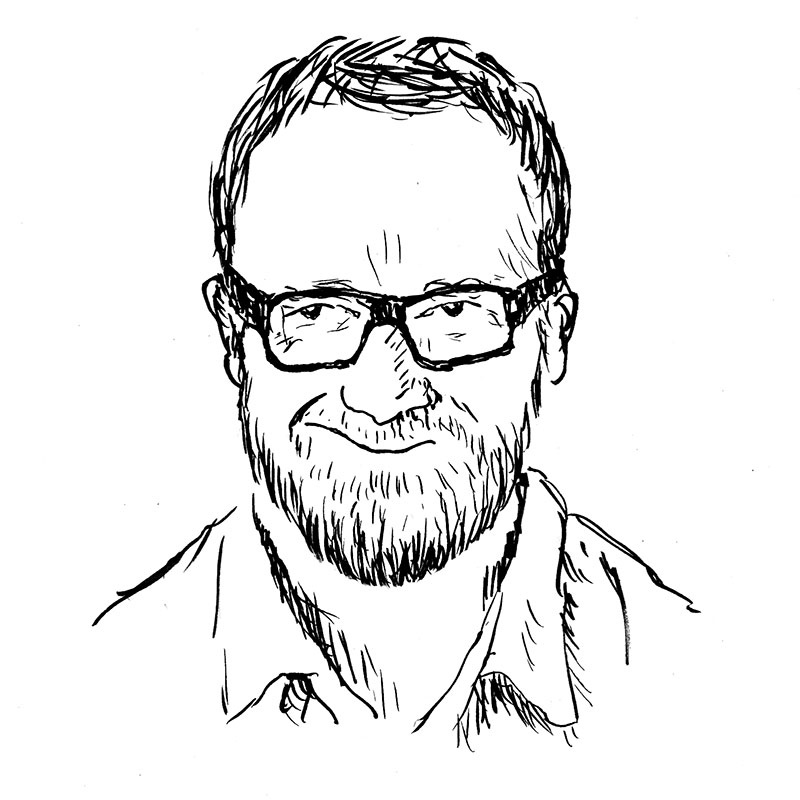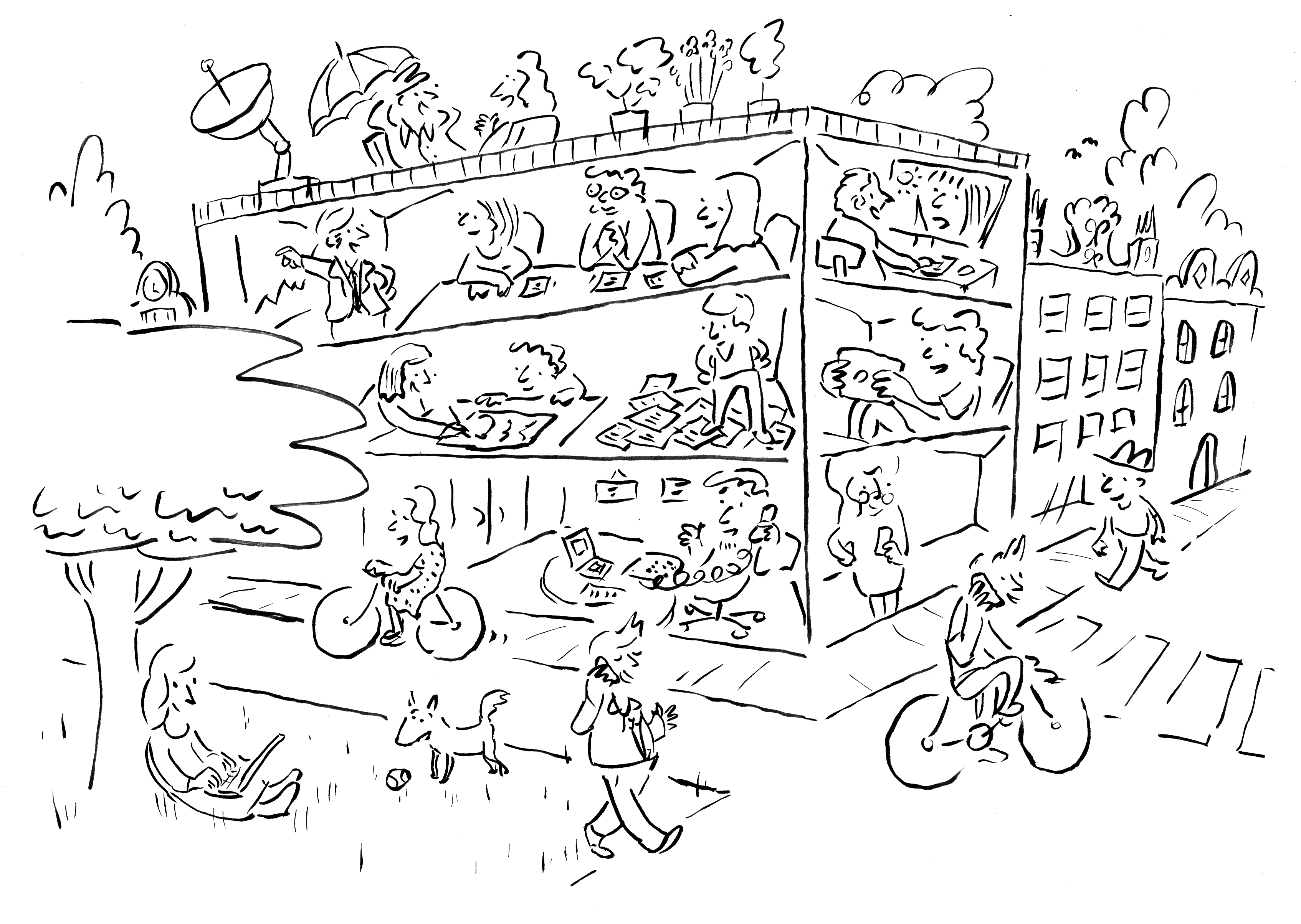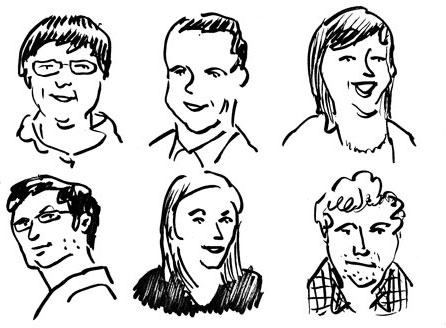A Loosely-Designed Organization
by Paul Bennett

I remember clearly that the day before I came to Palo Alto to be interviewed at IDEO, I had an interview at a major athletic apparel company. During the conversation there, two things stood out – firstly, they completely blindsided me by immediately asking what my “connection was to team sports,” to which I blankly answered “none,” essentially ending my career there on the spot. But more importantly, there was a lot of talk about how my performance would be measured if I worked there – they had what seemed to be a complex system of dials and levers on a spreadsheet that somehow added up to some magical algebraic calculation and my salary, level and future career trajectory would apparently be decided based on it. I remember leaving feeling pretty deflated, thinking that I would get lost there.
The next day, I found myself upstairs in 100 Forest Avenue, being interviewed at IDEO and I asked Tim: “How will I know if I’m being successful here?” to which he answered in an almost Yoda-like way: “The system will embrace you and you will see your impact.” I remember thinking “Huh?” and sort of feeling trapped between two stools – the day before I felt like a cog in a large, anonymous system, and now here I was in what felt like some ethereal cloud talking about impact. Little did I know. Five weeks later, I had started working in Palo Alto and the cloud had completely embraced me. I was invited to brainstorms, people were asking me questions, genuinely interested to know what I thought, asking me to work on projects with them and to review work, share ideas and to actually design stuff with them. I felt like I both belonged, but more importantly, that I mattered here. I was seeing my impact.
Why am I telling you this? We love our Venn diagrams at IDEO and like many aspects of our work, the sweet spot of course lies in the middle. Enough design, but not too much. Enough structure without feeling too structured. Enough intention without feeling too controlling. We want to create enough of a system for us to function in but not so much that we feel, well, too functional. David Kelley once said to me: “I don’t want us to be like everyone else. Who wants ordinary when you can be extraordinary?”
I’ve been lucky in that I have traveled and worked in pretty much every IDEO office, so I can say this with my hand on my heart – they are both strikingly similar in ways that matter and uniquely different in ways that inspire. Shanghai and Munich may be culturally poles apart, but all of our offices feel similarly warm, embracing, fun, human, serious, businesslike and playful. Now apply this logic to designing an organizational system.
Hard, huh? We need to allow our core to be the same and consistent from place to place – the same values, embodied in our people, but still allowing for local nuance and geographic diversity. One of our colleagues in the Shanghai office summed it up beautifully: “IDEO is the country.”

We are creative people, so doing things that feel buttoned up and, well, organizational, doesn’t come easy to many of us.
Following that theme, there is no org-chart in the sky, no burning bush, master document, no big annual PowerPoint. We fall more into the campfire tradition – stories told, ideas shared, hopes and dreams recognized, and provocations from round the world gathered. The State of IDEO is as close as we will ever get to an “official” document, and I am happy to report that that is unlikely to change.
A final thought: IDEO's business and culture are complex, so the need for leadership at IDEO is both broad and deep, encompassing locations, skill areas, people, projects and clients, and it has many vectors and dimension that span the formal to the informal, so it is a challenging thing to manage. And don’t forget, we are creative people, so doing things that feel buttoned up and, well, organizational, doesn’t come easy to many of us - IDEO gives me a place where I can squint and feel my impact with just enough boundary conditions to allow me to feel safe, over conditions that feel somewhat algebraically calculated.
Back to my own early days here: I have never worked anywhere where everyone works so hard to make everyone else successful, where people work so diligently to support and enable others, where the collective helps you calculate and calibrate your own impact, but where, when necessary, hard decisions are made, by people, for people.
